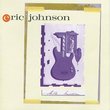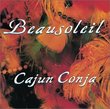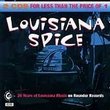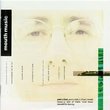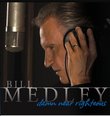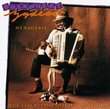| All Artists: Guy Davis Title: Legacy Members Wishing: 1 Total Copies: 0 Label: Red House Release Date: 8/24/2004 Genres: Blues, Pop Style: Acoustic Blues Number of Discs: 1 SwapaCD Credits: 1 UPC: 033651017523 |
Search - Guy Davis :: Legacy
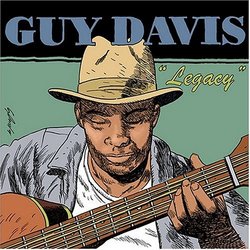 | Guy Davis Legacy Genres: Blues, Pop
Another superb release from one of the greats of the new country blues revival. The CD features 8 brand-new Davis originals and 7 imaginative new turns on classics by masters like Skip James, Mississippi John Hurt, Sleepy ... more » |
Larger Image |
CD DetailsSynopsis
Album Description Another superb release from one of the greats of the new country blues revival. The CD features 8 brand-new Davis originals and 7 imaginative new turns on classics by masters like Skip James, Mississippi John Hurt, Sleepy John Estes and Lead Belly. A 2004 WC Handy Awards nominee in two categories, Davis tops himself yet again with this stunning all-acoustic recording that makes manifest why his popularity is ever on the rise. The CD's packaging is particularly inventive. The booklet includes a tongue-in-cheek "comic book" story of Guy and the Devil at the crossroads drawn by the "other Guy Davis" - the acclaimed graphic novel illustrator. Similarly Requested CDs
|
Member CD ReviewsReviewed on 4/15/2010... Wonderful CD! Bluesy, Folksy, at times interposed with some slightly more modern variations. His lyrics go right to the heart. My favorite song, "I Just Can't Help.."
CD ReviewsAnother great album! Jessee J. | Cincinnati, Ohio | 02/20/2005 (5 out of 5 stars) "It always amazes me whenever I meet someone who claims to be a blues fan, but who hasn't heard of Guy Davis. Even though I had always enjoyed blues, I never really got seriously into it until I bought "Butt Naked Free." Guy's brand of blues is irresistable - it is richly acoustic (but not without the occasional touch of electic virtuousity from talents such as Roth Patterson), resonantly traditional (with a totally modern awareness), and just plain good. "Legacy" is a wonderful continuation of Guy's previous work, and while it will satisfy fans looking for more of the sound they've come to love, it also ventures out onto a couple of new branches. The first track, "Uncle Tom's Dead," is an interesting hybridization of rap and blues which takes the form of an argument between Guy and his teenage son, a generational conflict that I'm sure a lot of blues fans can understand. Both this song and the more traditional track "I'm Gone" take the bold step of including the "N" word, which has not previously been included in Guy's lyrics (to my knowledge). It is up to the listener to decide how to feel about this, but the use of the word seems contextually appropriate in both cases. There really is not a single bad - or even unremarkable - song on this album, but several stand out as my favorites. I love the simple, elegant resignation of "Payday" and the energy of "Run Molly Run" and "Red Goose" (although the biologist in me always wonders just what species of goose that is!). These latter songs have what Guy would call "a very high BSQ (Butt Shakin' Quotient)". Clapton fans will enjoy comparing covers of "Come Back Baby", and aging hippies and optimists alike will appreciate "We All Need More Kindness in this World." Adding to an already interesting album are the cover and booklet by graphic novelist Guy Davis (a different Guy), and there is allegedly a good Cabernet out there made by the winemaker Guy Davis (also a different Guy) to enjoy while you listen. In short (probably too late for that!), if you like blues, and especially good blues, you will love this album. " Reclaiming the Blues Snubnosed in Alpha | 08/19/2005 (5 out of 5 stars) "I'll begin by confessing a shortcoming: until one week ago I had never heard of Guy Davis. I almost literally stumbled upon a free outdoor concert that he was performing in Chattanooga on August 12th. (Side note: Chattanooga has become one of the coolest cities in the nation. Well worth a visit.) I was immediately transfixed, first by his flawless rythmic and melodic fingerstyle and 12-string slide playing (like Blind Willie?), but also by his soulful voice. It was like going back in time and hearing one of the blues masters live. He covered tunes by Mississippi John Hurt ("Pay Day"), Robert Johnson ("Sweet Home Chicago" and more) and others. But the move to his originals (like a new one, "Chocolate Man") was virtually seamless. I was hooked. The first thing I did was return to my hotel, pick up my guitar, and work out the fingerstyle melody to "Chocolate Man." My problem, though was that, first, I am not nearly as good as Guy and, second, I need to change the lyrics to "I'm the Vanilla Man," but it doesn't really fit the meter. The second thing I did was order "Legacy" from Amazon.
Perhaps my favorite part of his show was when he said, "I'm going to reclaim the banjo for the black man," and he reached behind him and pulled out a banjo. He added that he got his first banjo in the 1960s "when the last thing a black man should be seen with is a banjo." I think that moment defined much of what Guy Davis is about. He is unabashedly a blues man--and that in the oldest style of acoustic blues--who is reclaiming a rich and proud heritage largely neglected by African American artists and audiences. The cartoon insert of the Legacy CD includes Guy meeting the devil at the crossroads, and the devil observes that "only 2 percent of your audience is black." And Guy's first cut, "Uncle Tom's Dead," on "Legacy" (recorded with his son) addresses this very issue, as it's an exchange over the significance of the blues. One suggestion that Guy turns away in that exchange is that the blues is only "for white boys." He insists that "the blues is your heritage" with the younger Davis saying "who cares?" The blues is "Uncle Tom" music, he says, and "Uncle Tom's dead." He portrays a young African American drawn instead to the self-assertive and self-aggrandizing, always angry, sometimes violent themes of today's rap music. Is it, then, that younger African Americans have come to associate the blues with the "Uncle Tom," stereotype of the black man who bends to white oppression? Is rap, with its "I don't take no sh*t from nobody" attitude seen as the right response to generations of racism and oppression for a black population come of age? If so, it is really too bad as this very African American form of music boasts one of the richest musical heritages in history. And though this is easy for a "white boy raised in the suburbs" to suggest, isn't there undeniable dignity in a musical style that can express joy in the very face of oppression and sorrow? The man who can retain his humanity, when people with power are doing their best to grind it into the ground, emerges as the victor as I see it. And retaining one's humanity is not consonant with the attitude typically portrayed in "gangsta rap." Guy's music exudes this very dignity and humanity. In one line of "Uncle Tom's Dead," Guy says that "every black person should listen to the blues." I hope he succeeds in spreading the Gospel through the African American community. This will be his Legacy. My two favorites on this particular CD are Guy's covers of John Hurt's "Pay Day" and of the traditional "Rolling in My Sweet Baby's Arms." And the reason is that these two tunes really showcase his marvellous fingerstyle (Lord, help me to play like Guy Davis). As one reviewer has observed, the blues was really a kind of dance music originally, and I confess that, though I did not jump to my feet and dance at the concert, I had a very bad case of what Steve Martin called "happy feet," to the chagrin of my wife. Other great tunes on this CD include "Hikin' Jerry" (very traditional sound, rich acoustics with mandolin and slide acoustic) and "Drop Down Mama" (another case of happy feet). Buy this CD and then help spread the word!" |

 Track Listings (15) - Disc #1
Track Listings (15) - Disc #1
